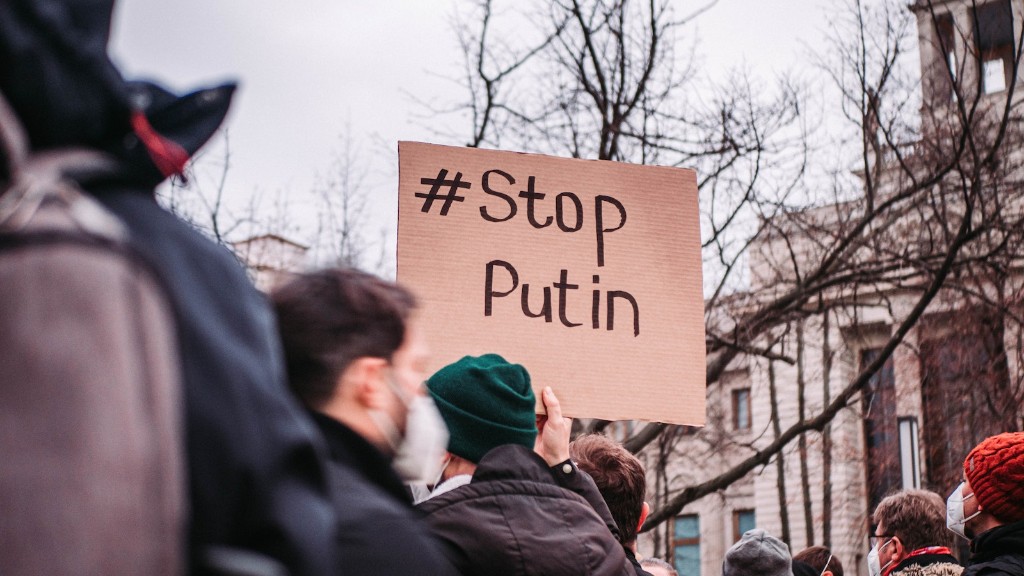NATO has had a long and complicated history with Ukraine as a state. For decades, it has been a matter of debate as to when the North Atlantic Treaty Organization (NATO) should accept Ukraine into its ranks as a full-fledged member. Since the mid-1990s, the topic has been discussed on several occasions, first in 1994 when a memorandum was signed by Ukraine pledging military cooperation with NATO and then again in 1997 when it was admitted to the Partnership for Peace program and the NATO-Ukraine Commission was established.
The situation became even more complicated when, in 2014, the Euromaidan protests in Ukraine against then-President Yanukovych escalated into a full-scale revolution. This led to Russia sending troops to Ukraine and annexing Crimea. However, in the face of these events, NATO decided to provide strong political and military support to Ukraine, including deepening military cooperation, additional support to reforms, and improving the country’s defense capacity.
Despite these events though, there has been no definitive answer to the question of when NATO should accept Ukraine as an official member. Some experts argue that Ukraine should be admitted into the organization due to its strong commitment to integration into international organizations, while others suggest that admission is necessary to prevent any further Russian aggression. On the other hand, some critics worry that Ukraine’s membership could lead to an imbalance of power within NATO and risk further destabilizing the region.
NATO has remained inconclusive in its response to the debate, further delaying any decisions about Ukraine’s official member status. In 2016, NATO Secretary General Jens Stoltenberg stated that membership in the organization is not a priority for the alliance. However, he did stress that the alliance is still strongly committed to helping Ukraine reform its defense forces and to providing political and military support.
Ukraine is keen to move the process of membership forward, and the Ukrainian President, Petro Poroshenko, has spoken to the government in Brussels about it. Furthermore, in early 2018, the government in Kyiv passed a law that declared the country’s ‘Euro-Atlantic integration’ and proposed closer cooperation with both NATO and the EU. This could mark a turning point in Ukraine’s bid for membership as NATO will need to take the country’s desires and ambitions into consideration.
At the same time, there are still a range of other issues that need to be addressed before Ukraine can become an official member of NATO. For example, there is the long-running dispute between Ukraine and Russia over the status of Crimea as well as the economic crisis in Ukraine and the ongoing insecurity and violence in some parts of the country. All of these have the potential to impede Ukraine’s integration into NATO.
NATO’s Conditions
NATO’s conditions to become an official member include “a democratic, stable government; a market economy; a commitment to human rights and the rule of law; and a commitment to the peaceful resolution of conflicts.” Ukraine meets most of these requirements. It has a democratically elected government, a functioning market economy, strong commitments to human rights and the rule of law, and a peaceful resolution of disputes.
Ukraine is making progress on democratic reforms and the country is gradually rebuilding military capabilities in order to meet the stringent criteria required by NATO. It is also participating in a joint NATO-Ukraine peacekeeping exercise, which is likely to be a factor in the organization’s decision making process.
The government in Kyiv is also working to create a stronger economic and defence union with the EU. This could strengthen Ukraine’s ties with Europe and lead to further integration with the NATO alliance. It could also pave the way for closer cooperation between Ukraine and Poland, which is already a member of NATO, and could be another important stepping stone for Ukraine.
Russia’s Response
NATO’s decision on allowing Ukraine accession is likely to be met with a negative reaction from Russia. It has already been vocal in its opposition to the idea, and Russian President Vladimir Putin has repeatedly warned that any effort to bring Ukraine into the alliance would be met with “serious consequences.”
This could further destabilize the diplomatic and military tension in the region and could potentially result in an even more unstable security situation in Ukraine’s east. Furthermore, it could lead to further economic and financial sanctions, which could damage both Ukraine’s economy and the wider European economies.
Criticism
NATO’s decision to expand its members is not without criticism. Some experts are concerned that a move to welcome Ukraine into the alliance could make existing tensions worse and could potentially lead to a new Cold War between Russia and the West.
Others argue that potential NATO members must not only adhere to the conditions of the alliance, but they must also demonstrate that they can contribute to the organization’s objectives and objectives of the Euro-Atlantic community as a whole. It is not clear whether Ukraine meets this criteria.
Critics also argue that the decision to accept Ukraine into the organization should be done on the basis of mutual agreement and not as a response to Russian aggression. It has been argued that any efforts to pressure Ukraine without addressing the underlying issues that led to Russia’s invasion could lead to further conflict and tension in the region.
Conclusion
Currently, it is uncertain when or if NATO will accept Ukraine as an official member. Although the country has met a number of the conditions necessary for accession, there are still a number of issues that need to be addressed and the response from Russia needs to be taken into consideration. Until that time, NATO is likely to continue providing strong political and military support to Ukraine to help the country reach its integration goals.



